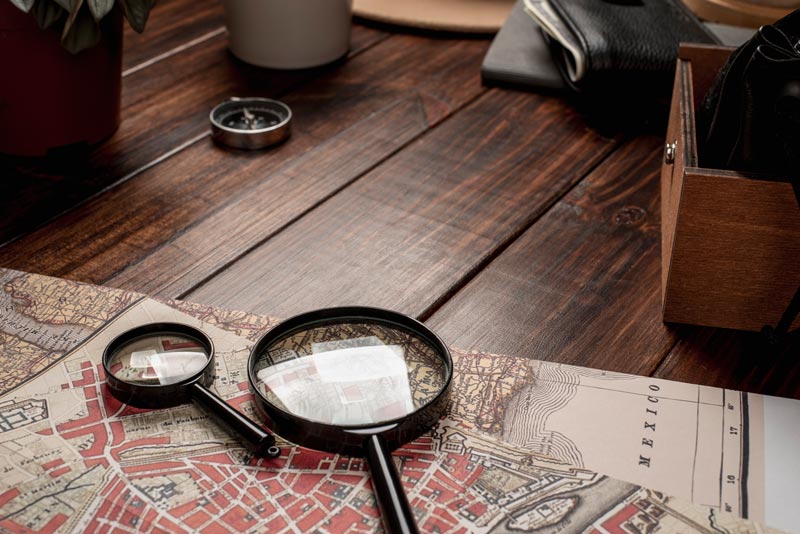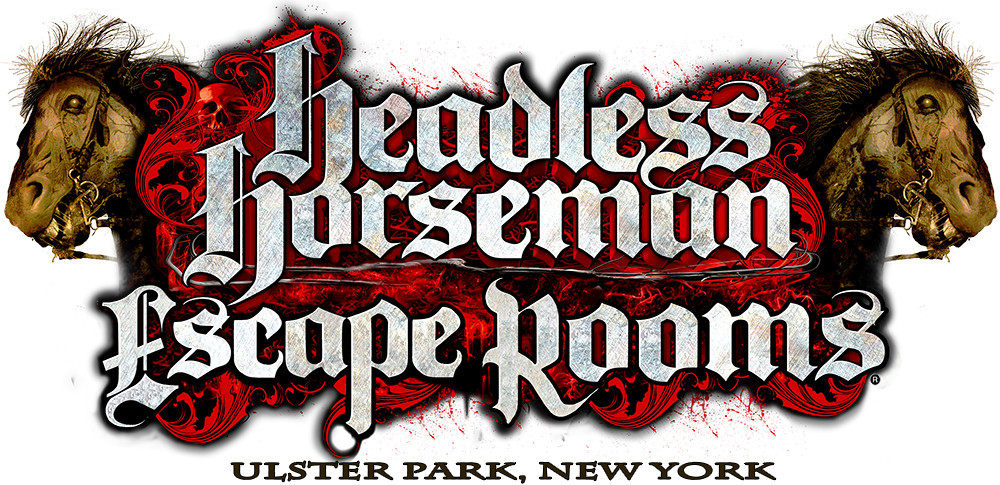1. Fun and Engagement
Escape rooms have garnered immense popularity as a source of enjoyable escape room team building activities. These experiences transport participants into exciting scenarios where they successfully solve intricate puzzles to exit the room. This break from the typical workday routine injects a sense of excitement and enthusiasm into the team-building process. The sheer enjoyment factor of escape rooms cannot be overstated, making them an exceptional choice for teams seeking an engaging and entertaining adventure.
2. Stress Management and Resilience
Escape rooms are intentionally designed to introduce a sense of time-bound pressure. This pressure mirrors the stress often encountered in workplace settings, offering a unique opportunity for stress management and resilience development. Participants must adapt swiftly, maintain their composure under pressure, and develop the mental fortitude to confront challenging situations. Through these escape room challenges, individuals can bounce back from setbacks and tackle obstacles head-on, strengthening their resilience.
3. Collaboration and Communication
Escape rooms thrive on the principles of collaboration and communication, which are fundamental to effective teamwork. Teams must work harmoniously to decipher clues, solve intricate puzzles, and ultimately achieve their goal before the allotted time elapses. The escape room environment compels participants to openly share their thoughts, ideas, and discoveries, underscoring the importance of transparent communication channels. This firsthand experience underscores the value of efficient teamwork, where success hinges on working together seamlessly and effectively conveying information.
4. Leadership and Decision Making
Escape rooms frequently unveil latent leadership qualities within a team. As participants grapple with complex puzzles and the ever-ticking clock, someone naturally emerges as a leader to guide the group. This organic emergence of leadership roles nurtures essential skills for making critical decisions in high-pressure situations. The experiences gained in escape rooms underscore the significance of taking initiative, providing direction, and making prompt choices—qualities that align well with time-sensitive work environments.
5. Problem-solving and Critical Thinking
At the core of every escape room challenge lies the art of problem-solving and critical thinking. Participants are presented with multifaceted puzzles that demand not only solutions but also creative ones. Consistent engagement in these exercises fosters an enhanced capacity for problem-solving—a skill set that holds significant relevance in real-world work scenarios. By regularly confronting complex challenges in escape rooms, individuals refine their ability to deconstruct problems, think innovatively, and develop creative solutions.
6. Bonding and Trust Building
Escape rooms provide a unique backdrop for strengthening bonds and cultivating trust among team members. As participants depend on one another to secure their escape, a natural sense of trust begins. This trust forms the foundation of improved team dynamics and cooperation, seamlessly transferring to the workplace. By navigating challenges and witnessing each other's contributions, participants gain a deeper appreciation for their colleagues, solidifying the bonds essential for effective teamwork.
7. Time Management and Prioritization
Mastering time management and prioritization becomes paramount in the fast-paced realm of escape rooms. Participants must quickly learn to allocate their time judiciously, focusing on tasks that contribute most to their escape. These finely honed skills in time management directly correlate with increased efficiency and productivity at work. The ability to allocate time wisely, prioritize tasks effectively, and maintain composure under tight deadlines acquired in escape rooms is a valuable asset in today's fast-paced workplaces.
How to Incorporate Escape Room Team Building
Having uncovered the remarkable advantages of escape room team building, it's time to delve into the practical aspect of incorporating this engaging activity into your organization's workplace strategies. Here are some actionable steps and considerations to ensure the seamless integration of escape room team building:
Planning Escape Room Team Building Activities
Before embarking on an escape room adventure, meticulous planning is essential. Begin by assessing the size of your team and the specific dynamics within it. Consider the experience levels of your team members and select an escape room, such as the Headless Horseman Escape Room, that aligns with their abilities. While a challenging room can encourage growth, an overly difficult one may lead to frustration. Striking the right balance is key.
Forming Teams for the Escape Room Challenge
Depending on your organization's or department's size, you may need to divide participants into smaller groups. This encourages diversity in collaboration and ensures that every team member plays an active role in problem-solving. Think strategically about team composition, aiming for a mix of skills, personalities, and perspectives within each group.
Setting Clear Objectives
Clearly define the objectives you aim to achieve through the escape room team-building activity. Are you primarily focused on improving communication, fostering leadership, or enhancing problem-solving skills? Communicate these goals to participants before the activity begins, ensuring everyone understands the intended outcomes.
Debriefing and Reflection
After completing the escape room challenge, consider the importance of debriefing and reflection. This post-activity session allows participants to share their experiences, insights, and challenges. Encourage open dialogue about how the skills and lessons learned in the escape room can be applied to their roles in the workplace.
Integration with Existing Training
To maximize the impact of escape room team building, consider how it can be integrated into your existing training programs or workshops. Identify specific areas where the skills developed in escape rooms align with your organizational goals. Incorporate these lessons into ongoing training sessions to reinforce their application.
Regular Follow-up Activities
To sustain the benefits of escape room team building, schedule follow-up activities that allow participants to apply their newfound skills. Create opportunities for team members to collaborate on real workplace projects or challenges that mirror the problem-solving and teamwork dynamics experienced in the escape room in Ulster, NY.
Feedback and Adaptation
Gather feedback from participants after the escape room activity. Use their input to adapt and refine your approach for future sessions. Continuously assess the impact of escape room for team building on your organization and make necessary adjustments to align with evolving goals and needs.
Celebrating Success
Recognize and celebrate the successes achieved through escape room for team building. Acknowledge individual and team achievements, fostering a positive atmosphere and reinforcing the value of such activities in your organization's culture.
Incorporating an escape room for team building into your workplace strategies can yield enduring benefits for your organization. By following these steps and remaining open to feedback and adaptation, you can ensure that escape rooms enhance teamwork, communication, leadership, problem-solving, and trust within your organization.

Do's and Don'ts for Escape Room Team Building
Do's
Communicate Effectively
Effective communication is the foundation upon which successful escape room experiences are built. Cultivating a culture of open and clear communication among team members is essential. This means encouraging everyone to share their discoveries, ideas, and observations with the group.
Timely and open communication ensures that all team members are on the same page, facilitating better decision-making as a collective. When everyone is well-informed, the team can function cohesively and respond to challenges more effectively, increasing their chances of success.
Assign Roles
To optimize your team's efficiency within the escape room, consider assigning specific roles to each member based on their strengths and skills. Roles such as puzzle solvers, clue trackers, and timekeepers help streamline the team's efforts.
By designating responsibilities, you can prevent confusion and ensure each member has a well-defined role. This approach promotes a well-coordinated team effort, enhancing your team's overall performance.
Work Collaboratively
Recognize the intrinsic value of teamwork and collaboration within the escape room setting. Understand that the success of an escape room challenge hinges on the group's collective efforts. Encourage team members to actively collaborate, share insights, and leverage one another's strengths to solve puzzles and surmount obstacles.
Emphasize the importance of working together as a cohesive unit. By harnessing the collective intelligence and skills of the team, you can effectively tackle complex challenges and increase your chances of escaping within the given time frame.
Think Creatively
Encourage team members to break free from conventional thinking and explore unconventional puzzle solutions. Creative thinking often leads to breakthroughs when confronted with intricate challenges in escape rooms. Encourage team members to embrace fresh perspectives, think outside the box, and develop innovative ideas.
By fostering a spirit of creativity, you can unlock hidden pathways and discover new approaches to overcoming obstacles in the escape room in Ulster, NY.
Manage Time Wisely
Vigilantly monitoring the passage of time is essential in the escape room environment. Allocate your time judiciously among the various tasks and challenges within the room. If you encounter a particularly challenging puzzle that seems impossible, resist the temptation to become fixated on it indefinitely.
Instead, practice strategic time management by redistributing your focus to different challenges. Later, return to the challenging puzzle with renewed insights and perspectives. This approach ensures a balanced and tactical use of your available time, increasing your chances of successfully escaping.
Stay Calm
Maintaining composure is crucial, especially when the pressure of time and challenging puzzles bears down. It's essential to remain calm and composed throughout the experience. Panic and anxiety can cloud judgment, hinder creative thinking, and ultimately impede your team's performance.
By keeping a cool head, you can think more clearly, make sound decisions, and contribute positively to the team's atmosphere. A calm demeanor enhances your problem-solving abilities and fosters a supportive and encouraging environment for your team.
Pay Attention to Details
Every detail in escape rooms is too small or insignificant to overlook. Adopt a meticulous approach to examining every element within the room, regardless of its significance. Critical clues and solutions are often concealed within seemingly minor elements or obscure details.
Scrutinize objects, decorations, and written messages carefully, as these meticulous observations can reveal essential clues and unlock complex puzzles. In the escape room in Ulster, NY, thorough attention to detail is your ally in deciphering the mysteries between you and success.
Debrief Afterward
After the exhilarating escape room challenge, gather your team for a comprehensive debriefing session. Reflect on the aspects of the experience that worked exceptionally well, identifying the strategies and skills contributing to your success. Additionally, explore areas where improvement is possible, discussing any challenges or difficulties faced during the challenge.
Most importantly, consider how the skills, problem-solving approaches, and teamwork demonstrated in the escape room can be applied to enhance collaboration and creativity in your workplace. This post-activity reflection is instrumental in maximizing the benefits and takeaways from the escape room experience.
Don'ts
Don't Dominate
Avoid monopolizing the gameplay and decision-making process. It's imperative to ensure that every team member has a chance to participate and contribute their insights actively.
Dominating the experience can stifle creativity, discourage engagement from others, and lead to a less enjoyable and less productive escape room challenge. A balanced and inclusive approach enhances the overall team experience and increases the likelihood of success.
Don't Ignore Others
Actively listening to your teammates' ideas and suggestions is paramount. Dismissing or overlooking their input can result in missed opportunities and hinder your team's progress.
Each team member brings unique perspectives and skills; valuing these diverse viewpoints is essential for success. Encourage open dialogue and the free exchange of ideas to ensure every contribution is considered and acknowledged.
Don't Rush Unnecessarily
While effective time management is crucial in the escape room in Ulster, NY, avoid the impulse to rush through puzzles without careful consideration. Hasty actions can lead to costly mistakes and missed clues.
Strive to strike a balance between a sense of urgency and thoughtful problem-solving. Take the time to assess each challenge systematically and the potential consequences of your actions to avoid errors that could impede your progress.
Don't Blame Others
In the face of challenges or if your team doesn't succeed in escaping, resist the temptation to assign blame or point fingers at fellow team members. Instead, focus on viewing the experience as a collective learning opportunity.
Embrace it as a chance to identify areas for improvement and growth as a team. Blame and finger-pointing can erode team morale and hinder productive post-game discussions that could lead to enhanced performance in future escape room challenges.
Don't Get Frustrated
When faced with challenges and obstacles in the escape room in Ulster, NY, resist the temptation to succumb to frustration. Maintaining a positive attitude is crucial, as frustration can cloud judgment and hinder creative thinking. Instead, approach challenges with patience and persistence.
Recognize that every puzzle you encounter is an opportunity to learn and grow. By staying calm and composed, you can think more clearly and contribute to a productive team atmosphere, ultimately increasing your chances of success.
Don't Damage Props
Display respect for the escape room environment and its props. Avoid any actions or behaviors that could damage furnishings, objects, or elements within the room. Respect for the venue and its contents ensures all participants a positive and enjoyable experience.
Preserving the integrity of the escape room demonstrates good sportsmanship and ensures that future participants can enjoy the same challenges and mysteries without disruptions caused by damage.
Don't Violate Rules
Always adhere to the rules and guidelines provided by the escape room facility. Ignoring these rules can lead to disruptions and negatively impact the experience for all participants.
Abiding by the rules ensures a fair and enjoyable challenge for everyone involved. It also helps maintain a safe environment for participants. Respecting the rules ensures that the escape room experience remains fun and inclusive.
Don't Forget to Have Fun
While the ultimate objective of participating in an escape room is to escape successfully, it's important to maintain sight of the primary purpose of escape room team building: to have fun and bond with your team.
Embrace the experience enthusiastically, celebrate small victories, and create lasting memories with your colleagues. Enjoy the camaraderie and adventure that the escape room offers, as it's not just about the destination but also the journey itself.
Key Takeaways
|
Ready to Boost Your Team's Skills? Book Your Headless Horseman Escape Room Today!
Escape room team building offers more than just fun—it's a practical way to nurture crucial workplace skills. Escape rooms provide surprising benefits in a thrilling setting, from stress management to better teamwork. You can create a more engaged and efficient group by incorporating escape room team building activities into your team's routine. The skills learned are useful and sustainable, making this a wise investment in your team's future. So, don't wait—book your Headless Horseman Escape Room experience today and unlock your team's potential!






